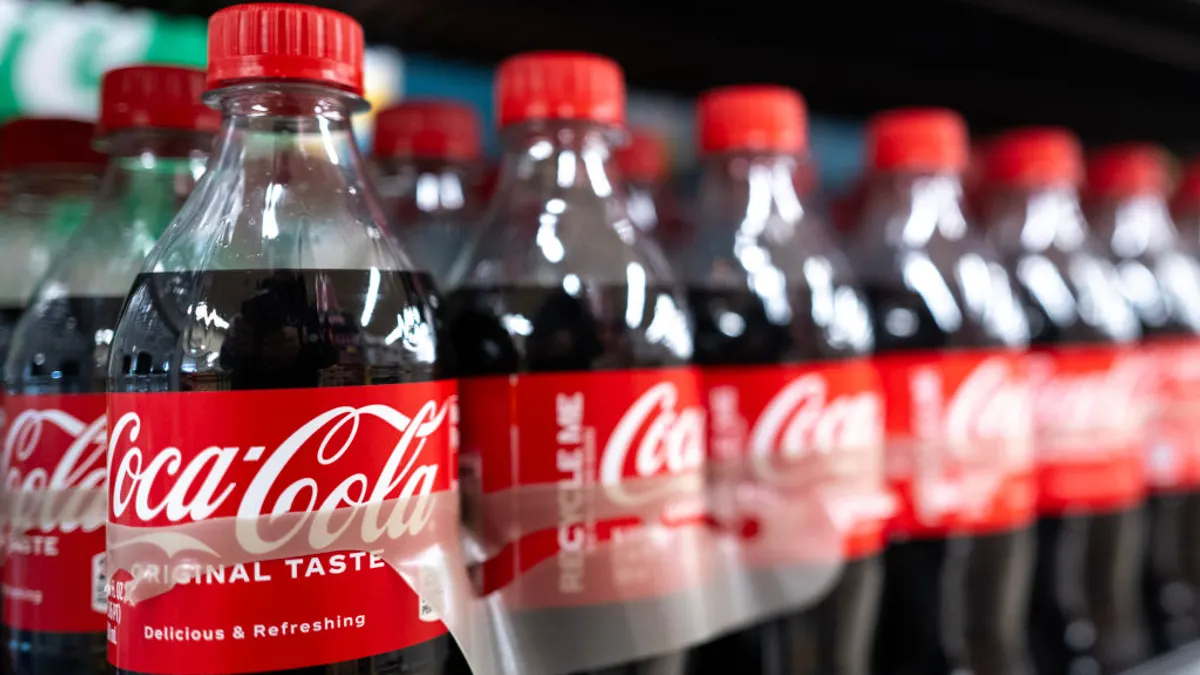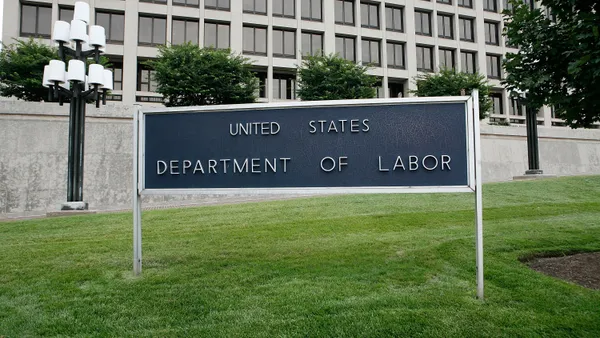Dive Brief:
- The widow of a former Coca-Cola executive sued the company on May 16 for allegedly violating the Employee Retirement Income Security Act after it withheld the executive’s retirement benefits following his death, according to the complaint in Gervait v. The Coca-Cola Co.
- Shortly before he retired, the executive enrolled in a “Key Executive,” or “top hat,” retirement plan offered to certain senior executives, the lawsuit alleged. He also enrolled in a qualified pension plan available to all eligible employees and elected to have his surviving spouse receive 100% of payments from the “Key Executive” plan, according to the complaint.
- The executive retired and began receiving payments totaling about $29,580 per month, the complaint said. At the time, he was married to someone else, the lawsuit alleged. She later died, and he became engaged to the plaintiff. An HR operations executive services manager allegedly “unambiguously” stated that if he was married to the plaintiff at the time of his death, she would be his “spouse at death” and entitled to 100% of the benefits under the executive plan.
Dive Insight:
After the couple married, the HR operations manager allegedly confirmed the plaintiff was added as a beneficiary of the executive plan and that the information had been processed and was in the system, according to the lawsuit.
Years later, following the executive’s death, Coca-Cola allegedly refused to pay the plaintiff the retirement benefits he’d been receiving under the Key Executive plan. The HR manager had previously confirmed the executive’s wife would not get payments under the qualified pension plan, and the lawsuit doesn’t seek those benefits.
According to the complaint, even though the Key Executive plan doesn’t define “spouse,” Coca-Cola now allegedly maintains the term could only mean the executive’s spouse at the time he began receiving benefits. It determined that because the plaintiff wasn’t married to him then, she wasn’t his surviving “spouse” and the other representations had been a mistake, the lawsuit alleged.
Coca-Cola did not respond to a request for a comment.
ERISA sets minimum standards for most voluntary retirement plans in private industry, according to an FAQ from the U.S. Department of Labor’s Employee Benefits Security Administration, which enforces the statute.
“Top hat” plans are “unfunded or insured pension plans for a select group of management or highly compensated employees,” the EBSA explains in another guidance.
Although top hat plans are not subject to certain ERISA requirements, including fiduciary responsibility requirements, Reinhart Law noted in a January post, top hat plan administrators must still file an electronic disclosure statement with the EBSA, according to the agency.
ERISA is very technical and can get “clunky” at times, an expert previously told HR Dive. Still, HR pros need to be aware of pertinent requirements because they may be responsible for handling many of ERISA’s day-to-day tasks, the expert said.
For instance, if someone asks for information about a retirement plan, employers have 30 days to comply, the expert said. Usually that person will go to HR for the information, and failure to timely respond can lead to big fines, she added.
In the Coca-Cola case, the widow alleged the company’s denial of benefits was inconsistent with the terms of the “Key Executive” plan. She sued the company and its benefits committee, the alleged plan administrator, for violating ERISA.
The widow alleged in the alternative, she was entitled to benefits under the doctrine of equitable estoppel.
She asserted that before and after they were married, she and the executive detrimentally relied on Coca-Cola’s representations — which were allegedly documented in writing — to plan for her financial security.
In particular, the widow alleged the couple negotiated and executed a prenuptial agreement that she would receive his benefits under Coca-Cola’s plan if he predeceased her. They also allegedly agreed he would not purchase additional life insurance.













